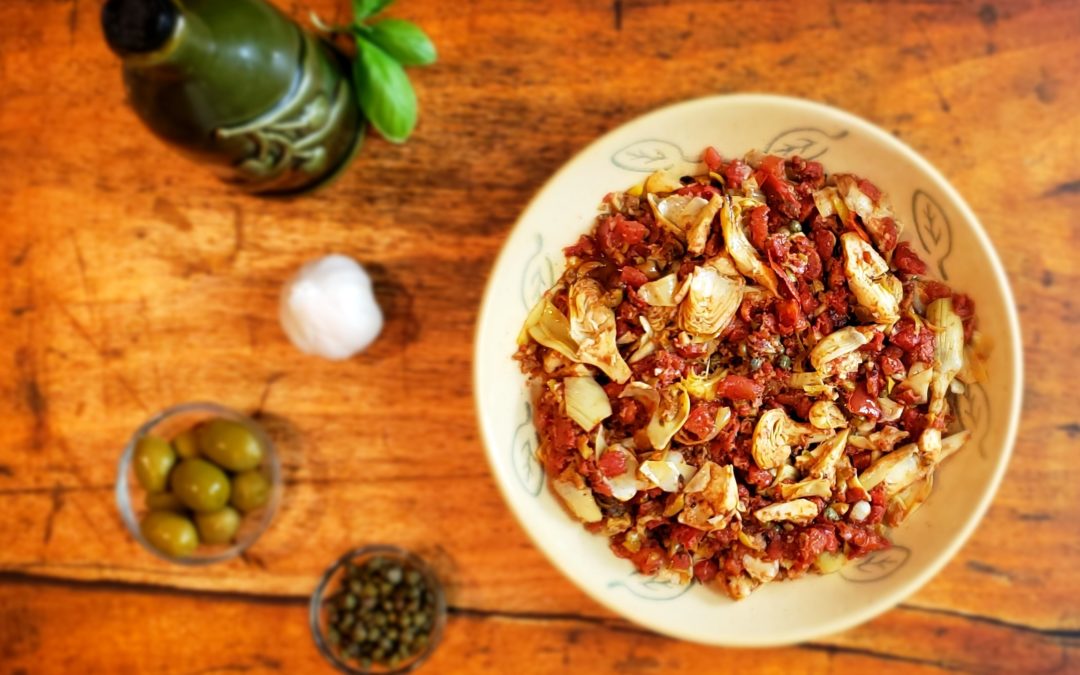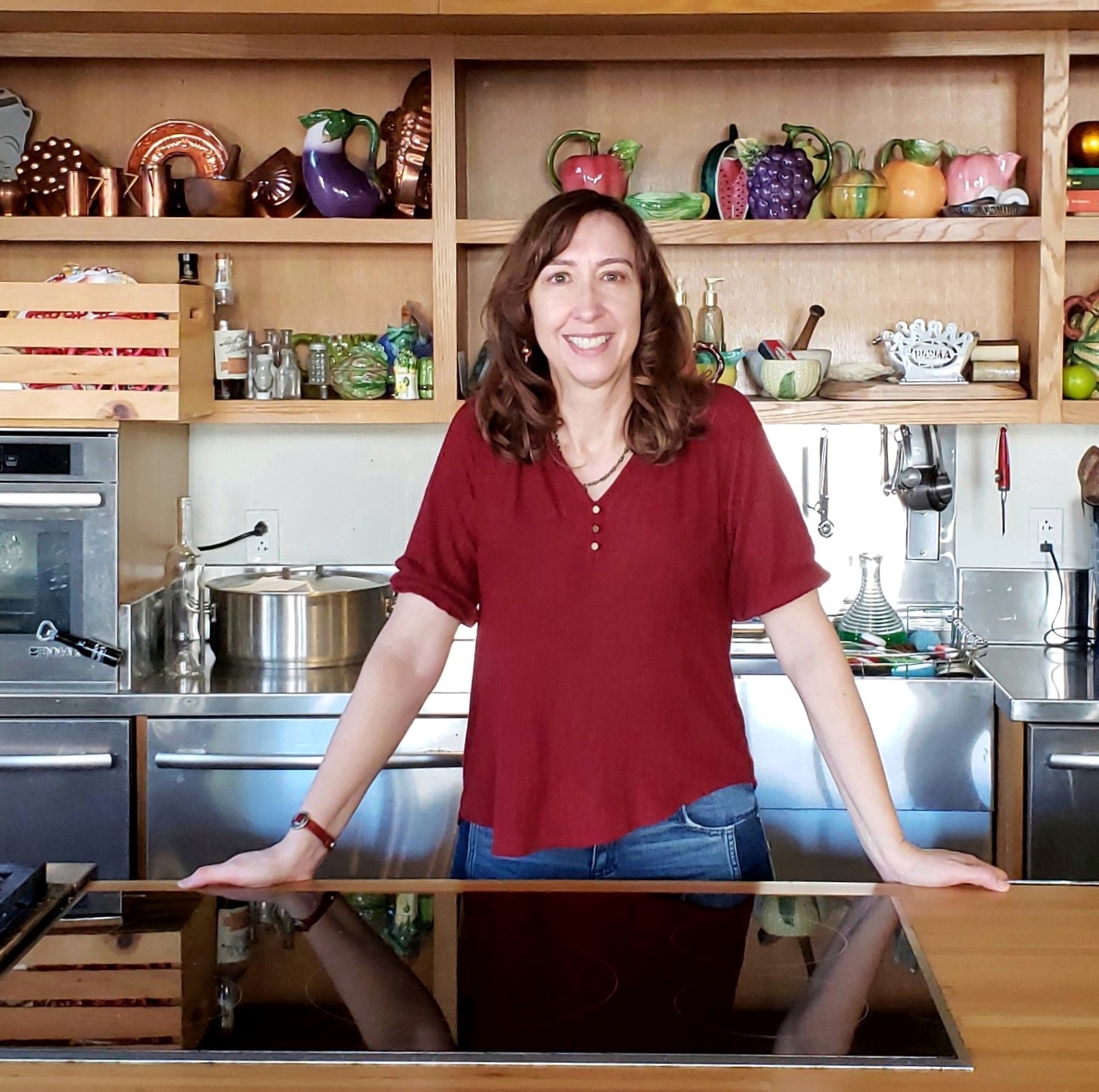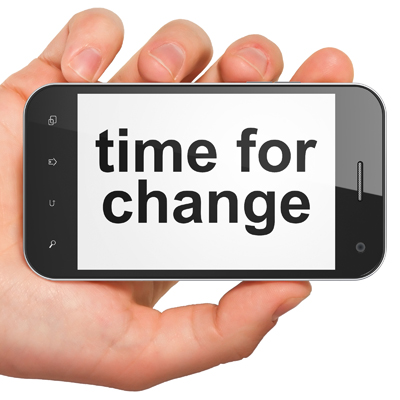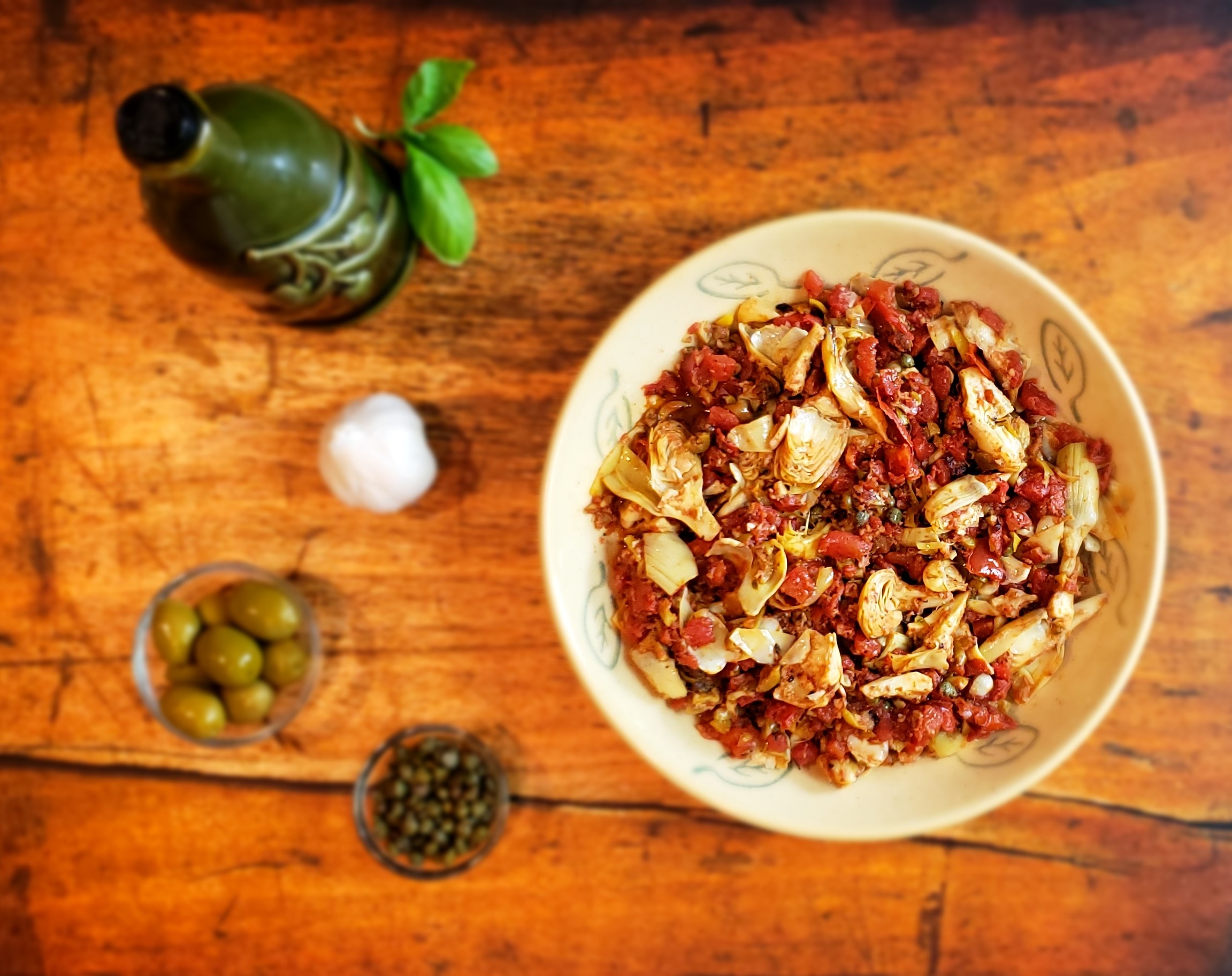No Cell Phone Zones and Digital Dining Etiquette for Healthier Habits
Gaps in my childhood memories are like holes in Swiss cheese, yet recollections of meals evoke a solid sense of belonging and comfort.
Feeling gushy about meals is easy when you nourish yourself, nurture friends and family and take a break from daily busyness to listen, share, laugh, commiserate and connect.
Commensal vs Convivial Eating and Cell Phones
Eating together, or commensality, is common—anyone, even animals can do it, but convivial eating, or fully engaging with someone during a meal is becoming rare.
Conviviality, a conscious social choice, separates dining together from simply eating food.
“The shared meal elevates eating from a mechanical process of fueling our body to a ritual of family and community, from mere animal biology to an act of culture.” Micheal Pollan
Often, at restaurants, I see tables full of diners, heads bent over their glowing laps. They’re being commensal, but where’s the conviviality?
Most adults (82 percent) surveyed by the Pew Research Center, felt cell phone use during social gatherings hurt the atmosphere or conversations of the group.
Yet, despite their concerns, 38 percent felt it was generally okay to use cell phones at restaurants. But family dinners? No.
Don’t set a place for phones since only 12 percent felt they belonged at a family dinner.
Physical and Emotional Health
Multiple studies link commensal family meals with positive benefits ranging from:
- better food choices,
- more moderate portion sizes,
- improved food recall and enjoyment,
- better school outcomes,
- lower risk of obesity, and
- less drugs or alcohol abuse by teenagers.
Studies focusing more on conviviality, link social interaction at meals as one key component in strengthening family ties and teaching children empathy and how to notice and interpret facial, eye and vocal tone cues.
Tech experts and psychiatrists can connect cell phone use to elevated stress levels and changes in how we interact with people IRL (text for In-Real-Life). Children and young adults, in some studies, shared feeling insecure and neglected because of adults dining with devices at family meals.
No Cell Phone Zone
Making a meal a mobile event or inviting the phone to the table can weaken social ties and ruin opportunities to create an environment of comfort and support.
“Your dinner table can be a sanctuary from the outside world, with its angry cries for and against. It can be a place to process the events of the day, the week, the month, the year, and always to celebrate the delicious.” Sam Sifton
Rebecca Wheeler, culinary instructor, food tour guide and mom, treats their family dinners as sacred times since work schedules or events limit the number of sit-down family dinners during the week.
“So, we take that time to light a candle, say what we’re grateful for, and talk and listen to each other.”
Along with her husband, they’ve achieved a no-phone zone (or other electronics) at the table. Their concern was that even picking up or glancing at a phone or device was a distraction and a subtle message that something else was more important than eating together.
As parents, they’ve resisted their own tech temptations at the table, instead modeling their message to teach their kids good habits around technology.
“for this reason there are no exceptions. It’s just easier to have some family rules be black and white.”
Mobile Meal Etiquette for Healthier Dinner Habits
For people who commonly invite their phone to dinner, the idea of a no-phone zone at meals may trigger stress, even nomophobia—elevated anxiety due to “no–more-phone” access. In the case of periodic use of phones at meals, consider adopting some basic phone etiquette to help create healthier and more socially considerate habits.
Examine your motivations and priorities. Is that phone call, text, email, social media post critical or does just feel like it? What’s behind the need or desire to respond? Can it wait until after the meal? Will a crisis evolve if you take break to prioritize people who want to enjoy your company and a meal?
Nuke the Notifications: Don’t tempt yourself. If you decide to devote your attention to socializing with others, turn off your phone or notifications and place it out of sight. Its presence on a table signals to your IRL friends or family members that more virtual distractions are likely.
Don’t look distracted or disengaged: Even a text, short email or glance at the phone to check for updates immediately communicates that someone else who is not at the meal is more important. Don’t buy into the myth that you can multi-task conversations in meaningful ways; no-one’s brain does this outside of science fiction movies.
Acknowledge your fellow eaters. If a potential phone distraction is likely or feels unavoidable, share that you have a time-sensitive or important issue which may require your attention and apologize, in advance.
Don’t invite a virtual-third party to the table: If you must take a call, leave the table to talk without being overheard. This practice avoids disrupting the meal and making your priority everyone else’s business.
Protect against Pathogenic Phones: Clean your phone often and wash your hands after using it. Over 90 percent of phones carry common bacteria such as Bacillus (think dirt) or viridans streptococci (mouth and throat) and some harbor worse pathogens like e-coli (poor bathroom washing behavior) or even the antibiotic resistant MRSA (Methicillin-resistant Staphylococcus aureus).
This year’s National Nutrition Month theme is “Put your best fork forward”. Eating well isn’t just nutrients, but how you think about eating. Consider the month of March a time to adopt new cell phone habits. A no-phone zone or better meal phone habits can pay-off with better health, well-being and relationships. At the very least, your memories of engaging with friends or family over a meal last forever, unlike your latest cell phone.
Geeky Resource List:
Pew Study: Americans Views on Mobile Etiquette
https://www.ncbi.nlm.nih.gov/pmc/articles/PMC3042390/ Mobile phone use and stress, sleep disturbances, and symptoms of depression among young adults – a prospective cohort study
NBC News cellphone and distracted parenting
https://www.theatlantic.com/health/archive/2014/07/the-importance-of-eating-together/374256/
http://www.eatright.org/resource/food/nutrition/eating-as-a-family/family-meals-small-investment-big-payoff
http://www.todaysdietitian.com/newarchives/100713p30.shtml
http://www.medicaldaily.com/distracted-eating-front-your-tv-or-your-phone-makes-you-fat-more-likely-snack-later-336438
Scientific American study nomophobia or fear-of-being-without-a-mobile-phone
https://www.statefoodsafety.com/Resources/article/category/Resources/article/the-dirty-cell-phone-25-107-bacteria-per-square-inch
http://www.thehealthsite.com/diseases-conditions/how-dirty-is-your-phone/

Artichoke Puttanesca–Forget its Saucy Reputation
Serves 6 as a complete meal with the pasta option A delicious mix of tangy, spicy and savory ingredients makes Puttanesca sauce (sugo alla puttanesca) a meal-time habit that can be made from your pantry. This popular Italian sauce commonly pairs with pasta but...

The Sweet and Meaty Taste Science of Grilled Vegetables
“Let’s grill tonight” translates to “let’s eat meat tonight” in many backyard BBQs. It’s not surprising since grilled meat products create hundreds of complex aroma and flavor compounds. Grilled vegetables create less of these craveable compounds but develop delicious...

Chipotle and Black Bean Tempeh Chili
Making chili should be an easy, homemade treat, but chili competitions and throwdowns can make it feel like it should be Instagram-ble or complex. Typically meat is central to chili, yet this tempeh chili is a contest contender for a comforting, satisfying homecooked...

Michele Redmond
French-trained Chef, Registered Dietitian Nutritionist & Food Enjoyment Activist
It's about Making Food First
Get Eat Well Academy periodic updates on easy ways to choose and cook foods that satisfy your appetite, nurture your body and make eating well a pleasure.

 “The shared meal elevates eating from a mechanical process of fueling our body to a ritual of family and community, from mere animal biology to an act of culture.”
“The shared meal elevates eating from a mechanical process of fueling our body to a ritual of family and community, from mere animal biology to an act of culture.”  Don’t set a place for phones since only 12 percent felt they belonged at a family dinner.
Don’t set a place for phones since only 12 percent felt they belonged at a family dinner.



 The pleasure of food, good health and well-being through simple habits for eating well and flexitarian low-key cooking.
The pleasure of food, good health and well-being through simple habits for eating well and flexitarian low-key cooking.